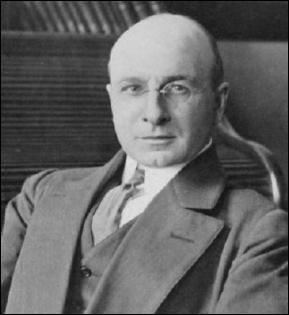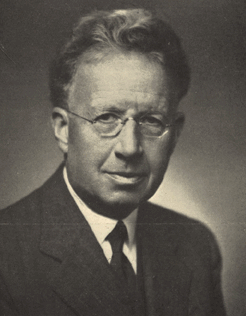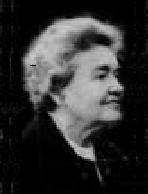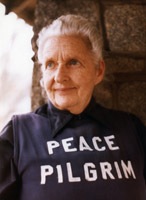Prayer, Harmony and Resilience

We hear an awful lot about the importance of integrating ourselves. One of the key questions, is how? Is it something that can simply arise on its own or do we need to find some kind of “ring master”? What, then, could be the unifying or integrating principle? Here is just one answer:
“Only in prayer do we achieve that complete and harmonious assembly of body, mind, and spirit which gives the frail human reed its unshakable strength.”
–Alexis Carrel (French-born American Surgeon, Experimental Biologist and, in 1912, Winner of the Nobel Prize for Medicine or Physiology, 1873-1944)
God’s Not a Cosmic Bellboy!

I spend a lot of time talking to people about creating their futures and manifesting their destinies. More and more we also get into the topic of petitionary prayer.
Unfortunately we often have to do a bit of de-programming. Some of the popular accounts of prayer and also of the Law of Attraction seem to promise people that all that they have to do is pray or visualize and God/The Universe will cough up whatever they want.
It doesn’t quite work like that!
Once they understand the underlying principles, they usually start to make rapid progress.
Depending on my audience, I sometimes like to use this quote:
“God is not a cosmic bellboy for whom we can press a button to get things.”
–Harry Emerson Fosdick (American Clergyman, Writer and Broadcaster, 1878-1969)
Opening the Door

“Anyone of any tribe or nation or language who in any sincere way turns to a Great Spirit, calling Him God or Allah or Life of whatever else he will, opens a door that God may enter his conscious mind and answer his prayers according to his faith.”
–Agnes Sanford (American Charismatic Christian Healer, teacher and Writer, 1897-1982)

The Frontiers of Prayer

One of the signs that people have developed from religion to spirituality, is that their attitude toward prayer changes. Worship and requests tends to evolve into silence and listening.
“When your intellect in its great longing for God gradually withdraws from the flesh and turns away from all thoughts that have their source in your sense-perception, memory or soul-body temperament, and when it becomes full of reverence and joy, then you may conclude that you are close to the frontiers of prayer.”
–Evagrios the Solitary (a.k.a. Evagrius Ponticus, Pontus-born Christian Mystic, Writer and “Desert Father,” c.346-399)
{On Prayer: “Philokalia Vol. 1”, pp. 62-63, text 62}
Prayer and Action

“There is a relationship between prayer and action. Receptive prayer results in an inner receiving, which motivates to right action.”
–“Peace Pilgrim” (a.k.a. Mildred Norman, American Peace Activist, 1908-1981)
Detachment

“When your intellect in its great longing for God gradually withdraws from the flesh and turns away from all thoughts that have their source in your sense-perception, memory or soul-body temperament, and when it becomes full of reverence and joy, then you may conclude that you are close to the frontiers of prayer.”
–Evagrios the Solitary (a.k.a. Evagrius Ponticus, Pontus-born Christian Mystic, Writer and “Desert Father,” c.346-399)
Pray Without Ceasing

“Let him never cease from prayer who has once begun it, be his life ever so wicked, for prayer is the way to amend it, and without prayer such amendment will be much more difficult.”
–Saint Teresa of Ávila (a.k.a. St. Teresa de Jesus, Spanish Nun, Mystic and Author, 1515-1582)
The Shedding of Thoughts

“You cannot attain pure prayer while entangled in material things and agitated by constant cares. For prayer means the shedding of thoughts.”
–Evagrios the Solitary (a.k.a. Evagrius Ponticus, Pontus-born Christian Mystic, Writer and “Desert Father,” c.346-399)
{On Prayer: Philokalia Vol. 1″ Text 71}

“The Philokalia Vol 1: 001” (G.E.H. Palmer, Kallistos Timothy Ware, Philip Sherrard)
Are Prayers Answered?

Most of the world’s population is in no doubt about the answer to the question, “Are prayers answered?”
In Healing, Meaning and Purpose I told the following tale:
“I review articles that have been submitted for publication to quite a number of major medical journals. I am known as something of a “hawk.” If there’s a mistake, I am usually good at finding it. Several years ago I was sent a now-famous study of the influence of distant prayer on the recovery of patients in a coronary care unit. I was certain that I would find a flaw in it, but after three days of intense work, I had to conclude that the paper was sound. And it is now one of many. Prayer works, whether or not the recipient even knows that he or she is being prayed for.”
So I was intrigued to see a new study from Arizona State University that was published in the March issue of the journal Research on Social Work Practice. David R. Hodge, a recognized authority on research in prayer, conducted a comprehensive analysis of 17 major studies on the effects of intercessory prayer – or prayer that is offered for the benefit of another person – among people with psychological or medical problems, and the researchers came up with a positive result.
David had this to say,
“There have been a number of studies on intercessory prayer, or prayer offered for the benefit of another person,” said Hodge, a leading expert on spirituality and religion. “Some have found positive results for prayer. Others have found no effect. Conducting a meta-analysis takes into account the entire body of empirical research on intercessory prayer. Using this procedure, we find that prayer offered on behalf of another yields positive results… “This is the most thorough and all-inclusive study of its kind on this controversial subject that I am aware of,” said Hodge. “It suggests that more research on the topic may be warranted, and that praying for people with psychological or medical problems may help them recover.”
“Overall, the meta-analysis indicates that prayer is effective. Is it effective enough to meet the standards of the American Psychological Association’s Division 12 for empirically validated interventions? No. Thus, we should not be treating clients suffering with depression, for example, only with prayer. To treat depression, standard treatments, such as cognitive therapy, should be used as the primary method of treatment.”
This result is different from the widely publicized study by Herbert Benson’s group that was published last year. So why the difference? First, this study, like all other meta-analyses, lives or dies on its methodology. This one used a very standard technique and the data look reliable. By contrast, the Benson study was an empirical study of the effect of prayer on cardiac disease. It appeared to produce a negative result.
There are always some difficulties with any studies on prayer:
- If I am praying for one outcome and you are praying for another, who “wins?”
- Can we really apply the scientific method to faith? {The answer to that one is yes. If someone tells me that the moon is made of green cheese and held up by pieces of string, they have just presented us with a testable hypothesis!}
- Are we being too limited and too limiting if we do a study in we only consider a physical outcome? What about the impact of prayer not only on physical and psychological well being, but also on our sense of meaning and purpose?
- By praying for a particular outcome, aren’t we trying to second guess a Higher Power? Before you can pray effectively, can you listen effectively and surrender to the Will of that Higher Power?
From personal experience and a very careful review of the literature I am in no doubt that prayer is effective. But only if we first ask for guidance and listen for the answer. Telling a Higher Power what to do is unlikely to be crowned with successs.
“When we pray to God we must be seeking nothing – nothing.”
–Saint Francis of Assisi (Italian Roman Catholic Friar, and in 1209, Founder of the Franciscan Order, c. 1182-1226)
“Most people consider the course of events as natural and inevitable. They little know what radical change is possible through prayer. Every morning I offer my body, my mind and any ability that I posses, to be used by Thee, O infinite creator, in whatever way Thou dost choose to express thyself through me. I know that all work is Thy work, and that no task is too difficult or too menial when offered to Thee in loving service.”
— Paramahansa Yogananda (Indian Spiritual Teacher and, in 1920, Founder of the Self-Realization Fellowship, 1893-1952)
“Prayer is not asking. It is a longing of the soul. It is daily admission of one’s weakness. It is better in prayer to have a heart without words than words without a heart.”
–Mahatma Gandhi (Indian Nationalist and World Teacher, 1869-1948)
“When you pray, above all ask heaven to give you light. For only light will allow you to find your direction, to avoid pitfalls and to find the strength to see your projects through to completion.”
–Omraam Mikhaël Aïvanhov (Bulgarian Spiritual Master, 1900-1986)
“Many people think that they don’t know how to pray. Just think of God as a great river that runs through the universe. The idea of prayer is not to pull God out of the stream but to put yourself into the stream with God.”
–Joni Rodgers (American Writer, Lymphoma Survivor and United Methodist Layspeaker)
Prayer and Healing

We have already talked a little about the associations between active, healthy spirituality and psychological and physical well-being.
Yet another study has highlighted the connection, showing that breast cancer patients who pray in online support groups can obtain mental health benefits.
Researchers from the University of Wisconsin-Madison Center of Excellence in Cancer Communications Research did the study that was that was funded by the National Cancer Institute.
The research looked at message transcripts from 97 breast cancer patients participating in an online support group that was integrated with the Comprehensive Health Enhancement Support System (CHESS) “Living with Breast Cancer” program, a computer-based health education and support system. The patients were recruited from Wisconsin and Michigan.
Surveys were administered before group access and then again four months later. Text messages within the computer-mediated support groups were analyzed using a text analysis program that measured the percentage of words that were suggestive of religious belief and practice (e.g., pray, worship, faith, holy, God). Writing a higher percentage of these religious words within the online support groups was associated with lower levels of negative emotions and higher levels of self-efficacy and functional well-being, even after controlling for patients’ pre-test levels of religious beliefs.
One of the researchers had this to say:
“From a psychological standpoint, there are a variety of reasons why cancer patients may benefit from prayer – whether on the Internet or elsewhere. In reviewing the messages, some of the most common ways study participants used religion to cope with their illness included putting trust in God about the course of their illness and consequently feeling less stressed, believing in an afterlife and therefore being less afraid of death, finding blessings in their lives and appraising their cancer experience in a more constructive religious light.”
And that is, of course, one set of explanations for the findings.
Or perhaps, as we have seen before, there is a growing body of research to indicate that prayer is effective.
We just have to expect it to be effective. And isn’t that faith?
“Prayer, like radium, is a luminous and self-generating form of energy.”
–Alexis Carrel (French-born American Surgeon, Experimental Biologist and, in 1912, Winner of the Nobel Prize for Medicine or Physiology, 1873-1944)
“Too often we see prayer as a last resort rather than as our first thought. People will say, “I guess all we can do now is pray!” like that’s the last thing, horrible thing to do. And your friend says, “Has it come to that?! Is it so hopeless that all we can do is pray?”
–Rick Warren (American Evangelist and Author, 1954-)
“Though God knows all our needs, prayer is necessary for the cleansing and enlightenment of the soul.”
— John Sergieff of Kronstadt (Russian Priest who, in 1882, Established the House of Industriousness, 1829-1909)
“Man often thinks that, as God is the knower of the heart, there can be no need of any recital or gesture in prayer: but that it would surely be sufficient if he were to sit in the silence and think of God. But this is not so; it is according to the extent of a man’s consciousness of prayer that his prayer reaches God.”
–Hazrat Inayat Khan (Founder of the Sufi Order of the West, 1882-1927)
“Through prayer, the love of God grows and assumes a form which is called supreme devotion. Forms vanish, rituals fly away, books are superseded, images, temples, churches, religions and sects, countries and nationalities – all these little limitations and bondages fall off by their own nature from him who knows this love of God.”
–Swami Vivekananda (Indian Hindu Mystic and Spiritual Teacher, 1863-1902)
“Prayer is part of man’s original nature. He can never be satisfied with merely meditative religion, and naturally and involuntarily inclines to move on to the religion of prayer.”
–Toyohiko Kagawa (Japanese Christian Anti-War Campaigner, 1888-1960)
“All true prayer somehow confesses our absolute dependence on the Lord of life and death.”
Thomas Merton (French-born American Trappist Monk and Writer, 1915-1968)
“There is a relationship between prayer and action. Receptive prayer results in an inner receiving, which motivates to right action.”
— “Peace Pilgrim” (a.k.a. Mildred Norman, American Peace Activist, 1908-1981)








